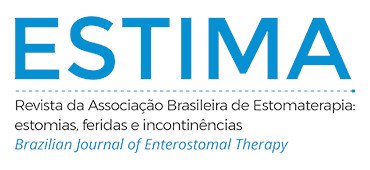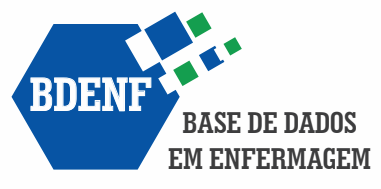THE USE OF MOULAGE IN CLINICAL SIMULATION: MULTIPLE CASE STUDIES
Abstract
Objective: identify how and why to use moulage within clinical simulation practices. Method: it is a multiple, inclusive, descriptive and exploratory case study with a qualitative approach. The cases were selected through an intentional sample. After applying the eligibility criteria, four cases of simulated scenarios that used moulage were included and analyzed. Results: all the cases analyzed were developed in extracurricular simulated clinical activities by facilitators with experience in clinical practices, teaching and simulation. The moulages used different
techniques, promoting greater interaction with the learner through the use of stimulants of different sense organs, sharpening clinical reasoning, the development of skills, competences, among others. In the four cases, the moulage was performed on a simulated patient, in simulated scenarios and simulated video. The reasons described for moulage were: to provide realism, fidelity, easy application and low cost. Conclusion: it was possible
to identify that the moulage is an adequate resource in clinical simulation and that when built with rigor and method, it influences the fidelity and realism of the simulated scenario.
Downloads
Metrics
References
Lioce L, Meakim CH, Fey MK, Chmil JV, Mariani B, Alinier G. Standards of best practice: Simulation standard IX: Simulation design. Clin Simul Nurs. 2015;11(6):309-15. https://doi.org/10.1016/j.ecns.2015.03.005
Costa RRO, Medeiros SM, Martins JCA, Dias VR. Percepções de estudantes de enfermagem acerca das dimensões estruturais da simulação clínica. Sci med. 2019;29(1): e32792. https://doi.org/10.15448/1980-6108.2019.1.32972
Makkink AW, Slabber H. For the students, by the students: Student perceptions of low cost medical moulage in a resourceconstrained environment. Afr J Emerg Med. 2019;9(4):207-11. https://doi.org/10.1016/j.afjem.2019.08.003
Kaneko RMU, Lopes MHBM. Cenário em simulação realística em saúde: o que é relevante para a sua elaboração? Rev Esc Enferm USP. 2019;53:e03453. https://doi.org/10.1590/s1980- 220x2018015703453
Jeffries PR, Rogers KJ. Evaluating simulations. Simulation in nursing education: From conceptualization to evaluation. New York: National League for Nursing. 2007. 87-103.
Choong J, Tan ZY. The role of simulation in burns education. Br J Hosp Med. 2019; 80(12): 716-9. https://10.12968/hmed.2019.80.12.716
Stokes-Parish JB, Duvivier R, Jolly B. Does appearance matter? Current issues and formulation of a research agenda for moulage in simulation. Simul Healthc. 2017;12(1):47-50. https://doi.org/10.1097/SIH.0000000000000211
Mills BW, Miles AK, Phan T, Dykstra PMC, Hansen SS, Walsh AS et al. Investigating the extent realistic Moulage impacts on immersion and performance among undergraduate Paramedicine students in a simulation-based trauma scenario: a pilot study. Simul Healthc. 2018;13(5):331-40. https://doi.org/10.1097/SIH.0000000000000318
Stokes-Parish JB, Duvivier R, Jolly B. Investigating the impact of moulage on simulation engagement: a systematic review. Nurse Educ Today. 2018;(64):49-55. https://doi.org/10.1016/j. nedt.2018.01.003
Pai DR, Singh S. Medical simulation: overview, and application to wound modelling and management. Indian J Plast Surg.2012;45(2):209-14. https://doi.org/10.4103/0970-0358.101280
Sezgunsay E, Basak T. Is Moulage effective in improving clinical skills of nursing students for the assessment of pressure injury?Nurse Educ Today. 2020;94:104572. https://doi.org/10.1016/j.nedt.2020.104572
Cazañas EF. Desvelando o uso da simulação nos cursos de graduação em enfermagem no Brasil. [tese]. Botucatu (SP): Faculdade de Medicina de Botucatu, Universidade Estadual Júlio de Mesquita Filho; 2020.
Garg A, Haley H, Hatem D. Modern moulage: evaluating the use of 3-dimensional prosthetic mimics in a dermatology teaching program for second-year medical students. Arch dermatol. 2010;146(2):143-6. https://doi.org/10.1001/archdermatol.2009.355
Silva DL. Além da tela: a experiência multissensorial das salas de cinema. Intercom. 2019;1-13. Available at: http://portalintercom.org.br/anais/nacional2019/resumos/R14-0738-1.pdf
Mazzo A, Miranda FBG, Meska MHG, Bianchini A, Bernardes RM, Pereira Junior GA. Teaching of pressure injury prevention and treatment using simulation. Esc Anna Nery. 2018;22(1):e20170182. https://doi.org/10.1590/2177-9465-EAN-2017-0182
Yin RK. Estudo de caso: planejamento e métodos. 5ª ed. Porto Alegre: Bookman; 2015.
Fabri RP, Mazzo A, Martins JCA, Fonseca AS, Pedersoli CE, Miranda FBG et al. Construção de um roteiro teórico-prático para simulação clínica. Rev esc enferm USP. 2017;51:e03218. https://doi.org/10.1590/S1980-220X2016265103218
Meska MHG. O uso da moulage nas práticas de simulação clínica: estudo de casos múltiplos. [Dissertação]. Ribeirão Preto (SP): Escola de Enfermagem de Ribeirão Preto, Universidade de São Paulo; 2020.
Kim YJ, Noh GO, Im YS. Effect of step-based prebriefing activities on flow and clinical competency of nursing students in simulation-based education. Clin Simul Nurs. 2017;13(11):544-51. https://doi.org/10.1016/j.ecns.2017.06.005
Costa RRO, Medeiros SM, Coutinho VRD, Mazzo A, Araújo MS. Satisfacción y autoconfianza en el aprendizaje de estudiantes de enfermeria: Ensayo clínico aleatorizado. Esc Anna Nery. 2020;24(1):e20190094. https://doi.org/10.1590/2177-9465-EAN-2019-0094
Bachion MM. Instrumentos básicos do cuidar: observação, interação e mensuração. Anais do I Simpósio Brasiliense de Sistematização da Assistência de Enfermagem de Brasília, 2009; Brasília. Available at: https://www.abendf.com.br/cursos_e_eventos/2010/simbrasae/ INSTRUMENTOS_BASICOS_
CUIDAR-MARIA_MARCIA_BACHION.PDF
Flores EK; Hess R. Comparing teaching methods on skin disorders using standardized patients dressed in moulage vs paper cases. Am J Pharm Educ. 2018;82(7):6636. https://doi.org/10.5688/ajpe6636
Sampson C, Parker CD, Burns E, Ruyan M, Higbee D, Koboldt T. (2018). A Low Cost Escharotomy Simulation Model for Residency Education. JETem. 2018;3(3):41-8. https://doi.org/10.5070/M533039877
Stokes-Parish J, Duvivier R, Jolly B. Expert opinions on the authenticity of moulage in simulation: a Delphi study. Adv Simul. 2019;4(1):1-10. https://doi.org/10.1186/s41077-019-0103-z
Downloads
Published
How to Cite
Issue
Section
License
Copyright (c) 2021 Mateus Meska, Rphael Raniere de Oliveira Costa, Leandro Mano, Elaine Cristina Negri Santos , Barbara Casarin Henrique-Sanches, Alessandra Mazzo

This work is licensed under a Creative Commons Attribution 4.0 International License.

























